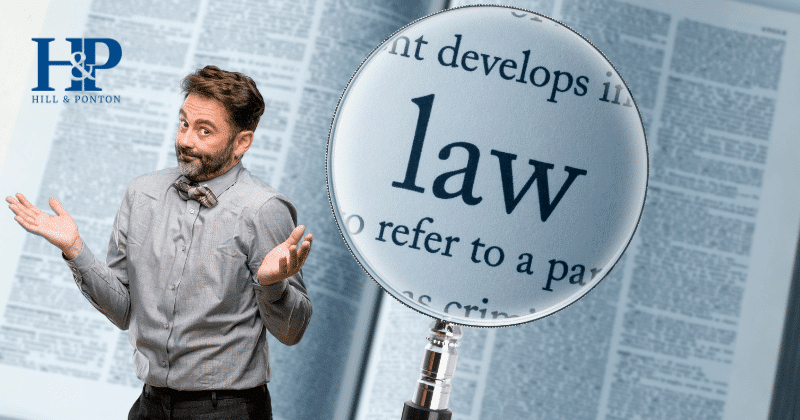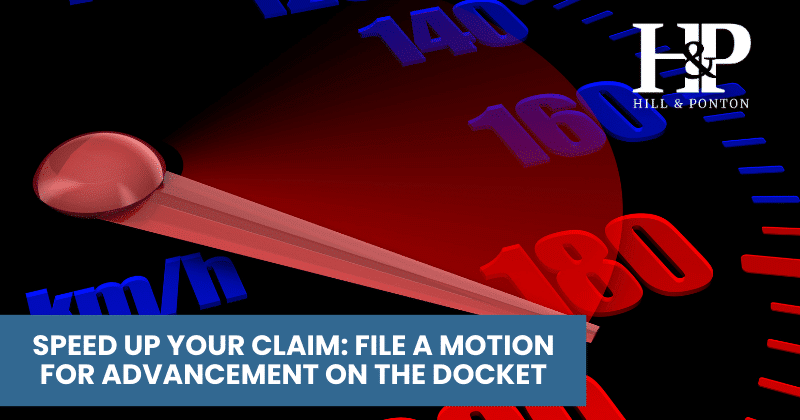If you’re a veteran living with a disability, you’re likely familiar with VA disability benefits designed to offer you support.
However, what you may not know is that there’s a special provision called Section 1151 that could be highly relevant to you.
Section 1151 is not just another bureaucratic term; it is a lifeline that can offer additional support in particular situations.
This provision can help you obtain benefits for injuries or conditions that occurred due to the negligence or fault of a VA healthcare provider.
Understanding Section 1151 and how it can affect your benefits is important.
The aim of this blog post is to explain what Section 1151 is, how it differs from standard VA disability benefits, and how you can go about filing a claim under this provision.
What is Section 1151?
Section 1151 is more than just a number; it’s a significant piece of legislation that can have a real impact on your life.
Let’s delve deeper into what this provision means for you.
Legal Background
Section 1151 is part of Title 38 of the United States Code, the law that governs veterans’ benefits.
This specific section is designed to protect veterans who have been harmed due to the negligence or shortcomings of the VA’s medical staff or facilities.
It’s a way for the government to take responsibility for any mistakes that happen under their watch.
Basic Provisions
So, what does Section 1151 actually cover?
In simple terms, this provision allows you to claim benefits for injuries or medical conditions that happened because of:
- Mistakes made during medical treatment at a VA facility.
- Lack of proper care or improper actions during your stay at a VA facility.
- Surgical errors or other medical mishaps.
In essence, Section 1151 is there to support veterans who have experienced harm due to the VA’s fault.
These are benefits above and beyond the standard VA disability benefits you may already be receiving.
Knowing about Section 1151 can be invaluable because it can open doors to additional support and compensation for you.
In the following sections, we will explore how Section 1151 differs from standard VA benefits and guide you through the process of filing a claim under this provision.
The Difference Between Standard VA Benefits and Section 1151 Claims
The world of VA benefits can be confusing, with various types and categories to navigate.
However, understanding the differences between standard VA disability benefits and Section 1151 claims can be a game-changer.
Let’s break down these differences to make it easier for you.
Standard VA Disability Benefits
Standard VA disability benefits are provided to veterans who have sustained injuries or suffer from conditions that are related to their military service.
These benefits are meant to compensate you for the difficulties you face due to those specific injuries or conditions.
Here’s what they usually cover:
- Physical Injuries: Such as loss of limb, hearing loss, or other bodily harm.
- Mental Health Conditions: Like post-traumatic stress disorder (PTSD) or depression.
- Illnesses: Acquired during or after your service, including diseases like Agent Orange exposure.
Section 1151 Claims
Section 1151 is a bit different.
These benefits are not for injuries or conditions directly caused by your military service, but rather for those that occur due to the negligence or mistakes made by VA healthcare providers.
Under Section 1151, you can claim benefits for:
- Medical Errors: Including surgical mistakes or wrong medication dosage.
- Inadequate Care: Such as failure to diagnose or treat a medical condition properly.
- Mistreatment: Any improper action that led to your harm while in a VA facility.
Key Distinctions
To sum it up, here are the major differences between the two:
- Origin of Condition: Standard benefits are for service-related conditions, while Section 1151 claims are for conditions caused by VA medical care.
- Purpose: Standard benefits aim to compensate for service-related harm, whereas Section 1151 aims to compensate for harm due to medical errors or negligence.
- Claim Process: The procedures to claim these two types of benefits are different and require different sets of documents and evidence.
How to File a Section 1151 Claim
Filing a Section 1151 claim might seem like a daunting task, but with the right information and preparation, it becomes manageable.
Let’s walk through the key steps you need to follow to submit your claim successfully.
Pre-Conditions
Before diving into the paperwork, you must first meet specific conditions to qualify for a Section 1151 claim.
You must be able to demonstrate that:
- You have a new or worsened medical condition.
- This condition was caused or aggravated by VA medical care or treatment.
- The care or treatment did not meet the generally accepted standards in the medical community.
The Filing Process
The following steps outline the claim process:
- Consult Medical Records: Thoroughly review your VA medical records to find evidence that supports your claim.
- Seek Professional Opinion: If possible, consult an independent medical professional for an opinion linking your condition to the VA’s negligence or fault.
- Fill Out the Appropriate Forms: The primary form for a Section 1151 claim is VA Form 21-0966 (Intent to File a Claim). You may also need additional forms based on your specific circumstances.
- Compile Evidence: Along with the forms, prepare all supporting documentation, such as medical reports, eyewitness accounts, or expert opinions.
- Submit Your Claim: Once everything is prepared, you can submit your claim either online, by mail, or in person at a VA facility.
- Follow Up: Keep track of your claim status and be prepared to attend any required medical examinations or interviews.
Documents Required
To submit a comprehensive claim, you’ll need to provide:
- Completed VA Form 21-0966 (Intent to File a Claim)
- Medical records and reports supporting your claim
- Statements from eyewitnesses, if applicable
- Any additional evidence that strengthens your claim
By understanding what’s required and carefully preparing your claim, you increase the likelihood of receiving the benefits you deserve under Section 1151.
Coming up next, we will discuss some common challenges and pitfalls you may face while navigating this process, and how to overcome them.
Challenges and Pitfalls in Section 1151 Claims
Navigating the legal landscape of Section 1151 claims can sometimes feel like walking through a maze.
It’s crucial to know the potential challenges you might face and how to avoid common pitfalls.
Let’s explore these aspects to make your journey smoother.
Legal Complexities
Section 1151 claims are fraught with legal nuances that can make or break your case.
Here are some of the legal challenges you may encounter:
- Burden of Proof: Proving that the VA’s negligence directly caused your condition can be challenging.
- Statute of Limitations: You usually have one year from the date of knowledge of the injury to file your claim, which can be a narrow window.
- Technicalities: Legal language and documentation requirements can be complex, potentially leading to mistakes or omissions.
Common Mistakes
Avoiding pitfalls can be as important as taking the right steps.
Here are some common mistakes you should be aware of:
- Incomplete Documentation: Failing to submit all required forms and supporting documents can stall or even derail your claim.
- Lack of Medical Evidence: Insufficient or unclear medical records may weaken your case substantially.
- Missed Deadlines: Failing to file your claim within the prescribed time frame can result in forfeiture of your benefits.
To navigate these challenges successfully, it may be wise to seek professional assistance, like hiring an experienced VA disability attorney who specializes in Section 1151 claims.
They can provide targeted advice and help you build a strong case.
Case Studies: Real-world Examples
Sometimes the best way to understand the ins and outs of Section 1151 claims is to look at actual cases.
These real-world examples can offer insights into what works and what doesn’t, and can provide you with a clearer perspective on the process.
Case Study 1: Surgical Error
- Background: A veteran underwent surgery at a VA facility and experienced severe complications due to a surgical error.
- Outcome: Filed a Section 1151 claim, backed by medical evidence and expert opinions, leading to a successful grant of benefits.
- Lesson: The importance of collecting robust medical evidence and expert testimonies can’t be overstated.
Case Study 2: Misdiagnosis
- Background: A veteran was misdiagnosed for a serious condition, which led to ineffective treatment and worsened health.
- Outcome: Initially denied benefits due to lack of direct evidence. Hired a VA disability attorney and successfully appealed the decision.
- Lesson: Legal expertise can be crucial, especially in complicated cases where initial claims may be denied.
Case Study 3: Delay in Treatment
- Background: A veteran had to wait an extended period to receive treatment, exacerbating their condition.
- Outcome: Faced challenges in proving that the delay was due to VA negligence but ultimately succeeded by presenting internal VA correspondence as evidence.
- Lesson: Sometimes unconventional forms of evidence, like internal communications, can tip the scales in your favor.
These case studies show that every Section 1151 claim is unique, and various factors can influence the outcome.
However, strong evidence, timely filing, and legal expertise often play critical roles in the success of a claim.
FAQs about Section 1151
You probably have a lot of questions about Section 1151 claims, and rightfully so—it’s a complex topic.
In this section, we aim to answer some of the most frequently asked questions that veterans like you often have.
What conditions are eligible for a Section 1151 claim?
Any condition that was caused or worsened due to the negligence, errors, or shortcomings of VA medical staff or facilities can qualify for a Section 1151 claim.
Do I need a lawyer to file a Section 1151 claim?
While you can file a claim on your own, the process is intricate and often requires legal expertise.
Consulting with an attorney who specializes in VA disability and Section 1151 claims can increase your chances of a successful outcome.
How long does it take for a Section 1151 claim to be processed?
The duration can vary widely depending on the complexity of your case and the evidence provided.
Generally speaking, it could take several months to a year for a decision.
Can I appeal if my Section 1151 claim is denied?
Yes, you can appeal a denied claim.
The appeal process is another complex undertaking and it’s highly advisable to seek legal counsel for it.
How are Section 1151 benefits calculated?
Benefits are usually determined based on the severity of your condition, just like standard VA disability benefits.
However, under Section 1151, you may also be eligible for additional compensation for suffering and inconvenience.
Can I file for both standard VA disability benefits and a Section 1151 claim?
Yes, you can file for both.
They are not mutually exclusive and, in fact, a Section 1151 claim can provide benefits in addition to your standard VA disability benefits.
We hope this FAQ section clears up some of the questions you might have had. However, given the complexity of the subject, you might have more queries or require clarification on some points.
If that’s the case, don’t hesitate to seek expert advice.
Navigating the intricacies of VA disability benefits can be challenging, but the additional avenue offered by Section 1151 is a critical one that should not be overlooked.
This provision acts as an essential safety net, extending support to veterans who have experienced harm due to the VA’s own mistakes or negligence.
Understanding Section 1151 can make a substantial difference in the level of support and compensation you may receive, making it invaluable for you and your loved ones.
From the initial stages of filing a claim to overcoming legal complexities and challenges, informed action is key.
While the journey may seem daunting, being well-equipped with the right information and, when necessary, professional legal advice, can guide you toward a successful outcome.
We’ve covered what Section 1151 is, how it differs from standard VA disability benefits, and how to navigate the filing process.
We’ve also discussed the potential pitfalls and challenges that you might encounter.
At the end of the day, the most important takeaway is that you are not alone.
Resources, both informational and professional, are available to help you navigate this path.
You’ve served your country; now let the systems in place serve you in your time of need.
Have Questions About Appealing Your Claim or Understanding How the Claims Process Works?
The attorneys at Hill & Ponton are here to support you with appealing a claim to get benefits.
If you are intending to appeal a denied VA disability claim, you can contact us for an evaluation and we can help you with this process.
However, if you are considering filing an initial claim, or even if you are interested in learning about the appeals process, we offer a free ebook to get you started on the right foot!
The Road to VA Compensation Benefits will help break down the claims process from start to finish. Click the link below to learn more.





